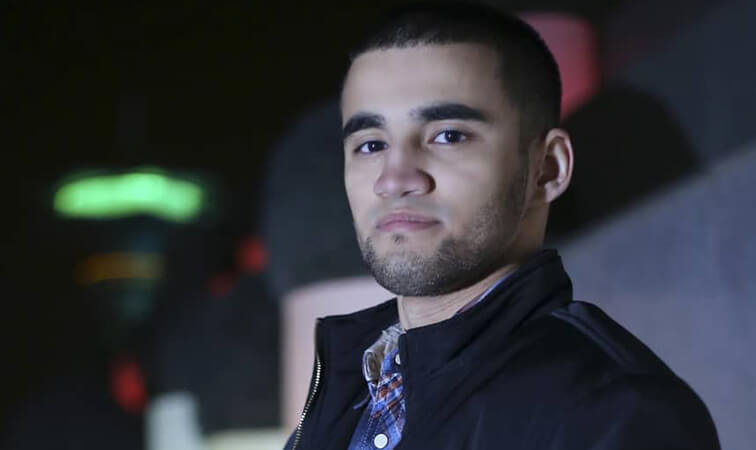Stockholm, May 21, 2021 – Turkmen authorities should immediately release journalist Nurgeldi Halykov from prison and allow him and all other journalists to work freely, the Committee to Protect Journalists said today.
On September 15, 2020, the Bagtyýarlyk District Court in Ashgabat, the capital, sentenced Halykov, a freelance correspondent working for the independent Netherlands-based news website Turkmen.news, to four years in prison on fraud charges, according to news reports, a statement by Turkmen.news, and the website’s director, Ruslan Myatiev, who spoke to CPJ in a video interview.
Myatiev said he believed the charges against Halykov were fabricated in retaliation for his journalistic activity, adding that the journalist contributed to the outlet since 2017, and his material was published without attribution to protect him from government retaliation.
Halykov was not included on CPJ’s December 1, 2020, prison census because CPJ was not aware of his case at the time. He is being held at the LB-E/12 police facility in the eastern Lebap region, according to a government document published in Turkmen.news’ statement.
“Turkmen authorities should immediately and unconditionally release journalist Nurgeldi Halykov from prison and cease filing retaliatory criminal charges against journalists for their work,” said Gulnoza Said, CPJ’s Europe and Central Asia coordinator, in New York. “For too long, correspondents of foreign independent media outlets have had to live in fear of arbitrary detention on spurious charges. Turkmenistan must live up to its international commitments and allow the press to work freely.”
On July 12, 2020, Halykov found an image on social media showing a World Health Organization delegation at a hotel in Ashgabat, and forwarded it to Turkmen.news, which published it later that day, according to the outlet’s statement.
The following day, Halykov’s acquaintance who had posted that photo asked him if he had passed the image to the news outlet; a few hours later, police called Halykov and summoned him for questioning, that statement said, adding that the outlet lost all contact with the journalist after July 13, with the exception of a brief message on July 26 explaining authorities’ allegations against him.
COVID-19 is a highly sensitive topic in Turkmenistan, where the authorities insist that the country has not had any cases, according to news reports and CPJ reporting.
Turkmen.news learned of Halykov’s sentencing in October, according to a December 14 report by the outlet, which stated that authorities accused the journalist of fraud by failing to repay a $5,000 loan from a friend.
The outlet had refrained from publishing any news about his case until that report, which said that law enforcement officers had falsely promised Halykov’s family that the journalist would be included in a batch of presidential pardons on December 12.
Myatiev told CPJ that he believed the allegation of an unpaid loan was likely false, saying that Halykov was not in desperate need of money and had a close relationship with Myatiev and would have told him if he had financial problems. He added that failures to repay debts are rarely criminally prosecuted in Turkmenistan.
Myatiev told CPJ that he suspected that authorities had discovered Halykov’s wider work for Turkmen.news during questioning, and that was the reason for the extended prison sentence. He told CPJ that the journalist used secure communications and regularly cleaned his electronic records, and he was afraid that authorities physically abused Halykov to coerce a confession.
Halykov contributed material on a number of topics, but most recently had covered the government’s response to the pandemic, Myatiev said.
On February 17, several U.N. agencies sent a joint statement to Turkmen authorities detailing their concerns with Halykov’s sentence and requesting more information. The Turkmen government replied with three short paragraphs containing no new information, according to reports.
OSCE Representative on Freedom of the Media Teresa Ribeiro also raised Halykov’s detention during a meeting with Turkmen officials, according to a statement by the organization.
Myatiev said that he is now appealing to the World Bank to make Halykov’s release a condition for a $20 million loan requested by the Turkmen government to help fight COVID-19.
Turkmenistan is one of the most censored countries in the world, and all media outlets inside the country are owned or tightly controlled by the state, according to CPJ research. Independent foreign outlets rely on networks of correspondents who often publish anonymously, a number of whom have previously been jailed on retaliatory charges, according to news reports and CPJ reporting.
CPJ called several different phone numbers for the Turkmenistan Interior Ministry found online and supplied by local journalists, but the calls rang unanswered, did not go through, or the numbers were incorrect.
CPJ sent an email to an address listed for the ministry, but did not receive any reply.
